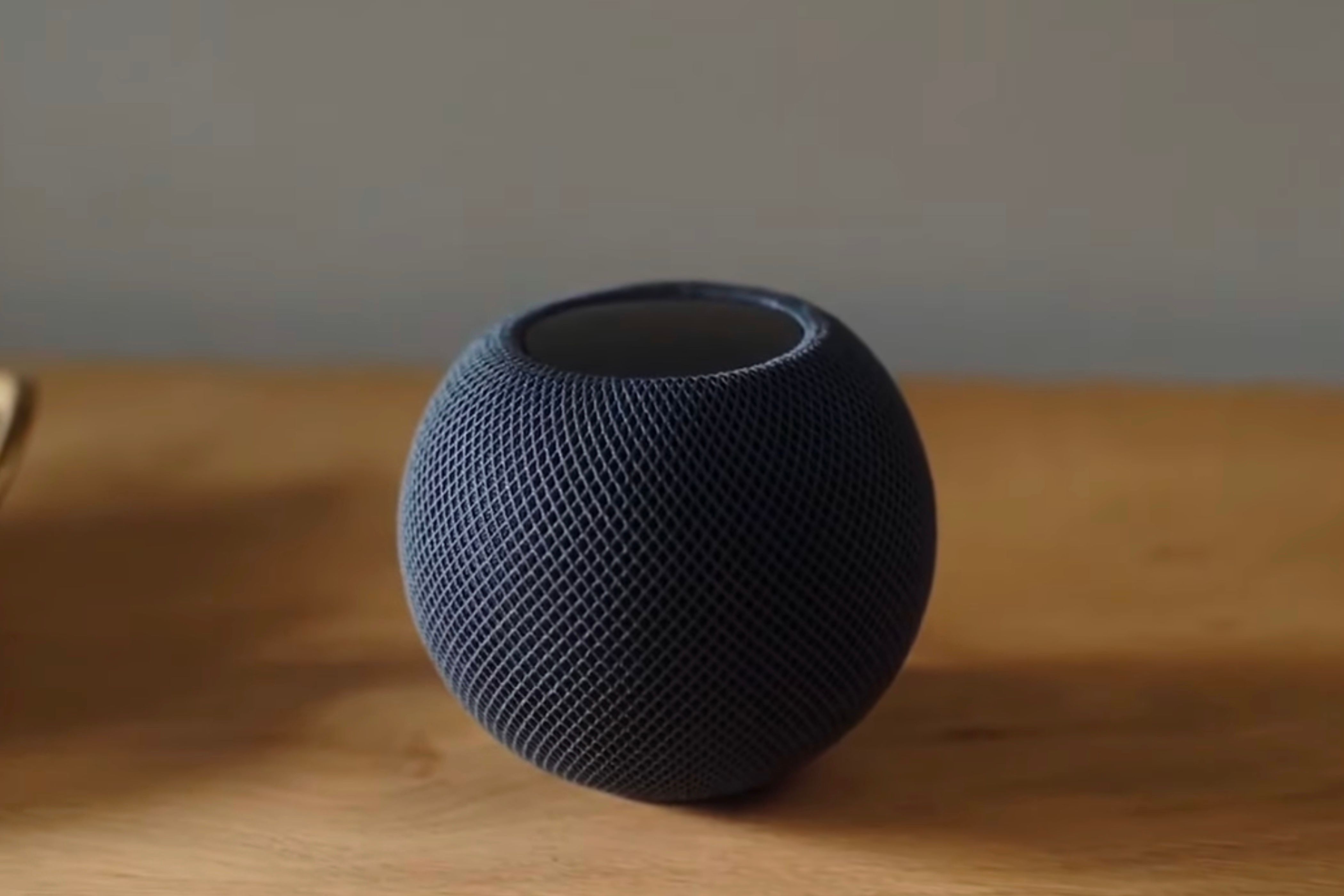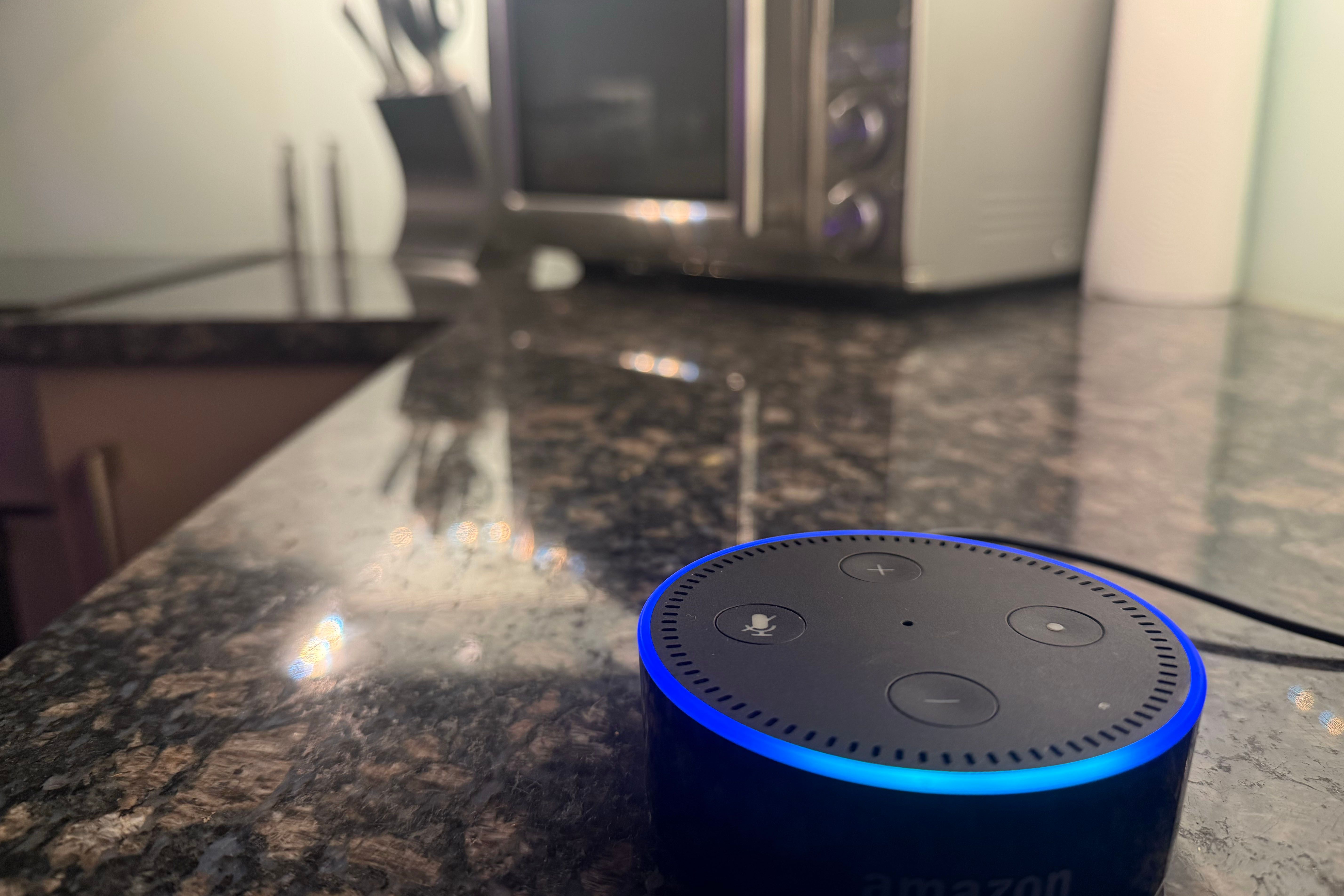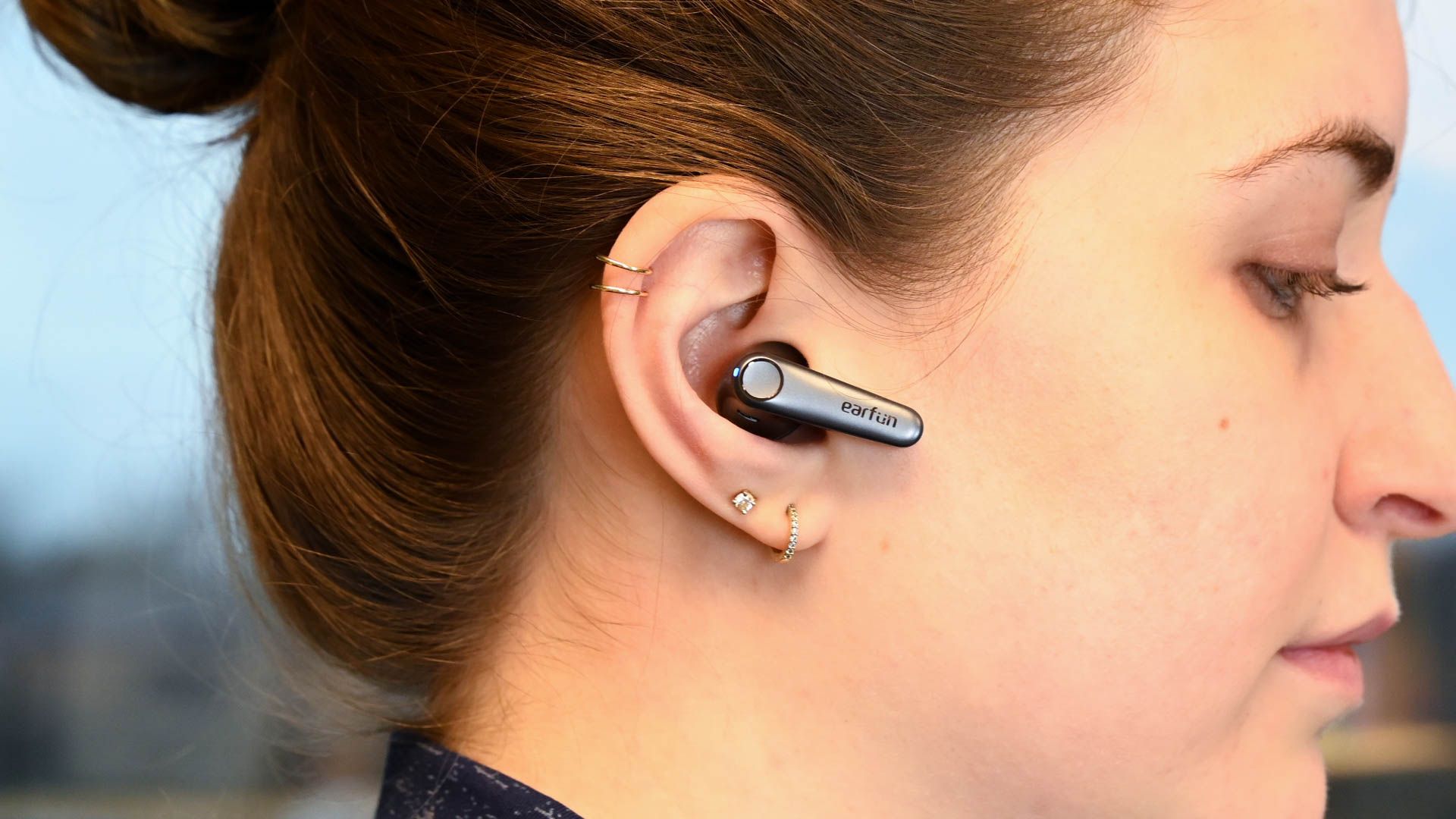Key Takeaways
- Smart speakers only actively listen for the wake word & won’t record without it.
- HomePods process voice locally, avoiding sending recordings to a server for interpretation, and humans never listen to your voice unless you opt in.
- Amazon & Google speakers process most requests on a cloud server, and humans may listen in occasionally unless you opt out.
What happens when you ask your smart speaker a question or give it a command? Depending on the circumstances, your speech might be processed locally by the speaker, sent to a cloud server, retained for future reference, or even reviewed by a human being.
Are Smart Speakers Listening to You Constantly?
The short answer to this is yes, but only in a limited way.
A smart speaker has to be ready to respond to your questions and commands at any time, so that requires it to be listening all the time. However, the only thing it is listening for is its “wake word”—the word or phrase that signals you are talking to it. Apple’s HomePod, for example, is listening for either “Siri” or “Hey Siri.”
Suppose you are having a conversation with your partner within “earshot” of your smart speaker. Unless you use the wake word, the speaker won’t record or remember anything you said. Once you do say the wake word, then the speaker will start actively listening to you.
If your speaker is actively listening to you, you’ll know this because a light will come on or it will respond to let you know.
Some Instructions Never Leave Your Home
HomePods have more powerful processors than other smart speakers. In particular, Apple has ensured they are sufficiently powerful that Siri can process your voice commands on the device itself. It doesn’t need to send your voice recording to a server in order to understand what you said.
Once it has processed your voice locally, and understands your question or instruction, it can then determine whether it is able to action your request locally, or whether it needs to send the content to an Apple server.
If you are giving an instruction to a smart home device, then Siri can action that without ever sending anything to a remote server. The same is true of basic things like setting alarms, timers, and reminders.
Most Are Processed on a Cloud Server
Amazon and Google smart speakers currently lack that ability to understand speech locally, so all your queries are sent to a remote server for processing. This is also true with HomePod for most requests beyond the simple things we’ve already mentioned.
The usual procedure, then, is that your speech is sent from the speaker to the company’s server, and it’s the server that works out what you have said and then responds to it.
Apple does have one additional privacy protection here. Before your voice recording is sent to a server, it is encrypted. Apple also assigns a unique code to your voice which is not linked to your Apple ID. This means that nobody can intercept your speech thanks to the use of end-to-end encryption, and Apple doesn’t actually know who has made a request or asked a question.
Your Speech Is Sometimes Kept for a Time
How long your speech is retained on the server depends on which smart speaker system you are using and the settings you have chosen.
For HomePod and Google speakers, your voice recordings are not kept unless you have actively opted in. That is, if you buy an Apple or Google speaker, take it out of the box, and start using it, your voice recordings are automatically deleted as soon as your request has been processed.
Both companies offer the option of allowing your recordings to be retained for training purposes. However, there is a potential catch with Google which we’ll come back to in a moment.
Amazon Echo speakers are different. The company does keep your voice recordings, and by default it keeps them forever. You can, however, change this if you wish.
Open the Alexa app on your phone, then Settings > Alexa Privacy > Manage Your Alexa Data. Scroll down to Voice Recordings > Choose How Long to Save Recordings. If you choose “Never,” that also instructs Amazon to delete all your past recordings.
Sometimes Humans Listen to Your Recordings
Apple, Amazon and Google all employ human reviewers to listen to a small sample of smart speaker voice recordings in order to assess the quality of the automatic transcription. However, policies differ when it comes to seeking your permission for this.
With HomePod, Apple says that humans will never listen to your voice recordings unless you have proactively given permission for this. Again, this means that if you buy a HomePod and just start using it, nobody at Apple will ever listen to your voice. Amazon has the opposite policy: it assumes your permission unless you actively opt out.
Google defaults to assuming it does not have permission. However, it treats all voice recordings as a single category, so if you have ever given permission to use voice searches on Google itself, in Google Maps, and so on for training purposes, then you also grant permission for the company’s smart speakers to do the same—even if you didn’t own one at the time.
To opt out of human review:
- For Apple speakers, no action is needed.
- For Amazon speakers, go to this page, scroll down to “Help Improve Alexa” and toggle “Use of Voice Recordings” off.
- For Google speakers, go to this page, scroll down to “Include Voice and Audio Activity” and ensure this isn’t checked.
What Privacy Protections Are Provided?
All smart speakers will use LED lighting to indicate that the speaker is listening to you. All allow you to temporarily instruct the speaker to stop listening either by voice command, software setting, or a hardware button. All give you privacy controls to allow you to decide whether voice recordings are retained.
You can read more about the privacy protections and options in our more detailed guide.
If privacy is key for you, Apple’s HomePod speakers offer the highest level of protection. However, that comes at a financial price, and it’s also worth noting that not all smart home devices are compatible with the company’s HomeKit ecosystem. Plus, you’ll arguably have the weakest assistant on the market.
Amazon Echo speakers offer the weakest privacy protections by default, but you can change the settings to suit your needs. Google sits somewhere between the two, but its mass of different privacy policies for all of its interlocking services can make it difficult to be sure you are in full control.







